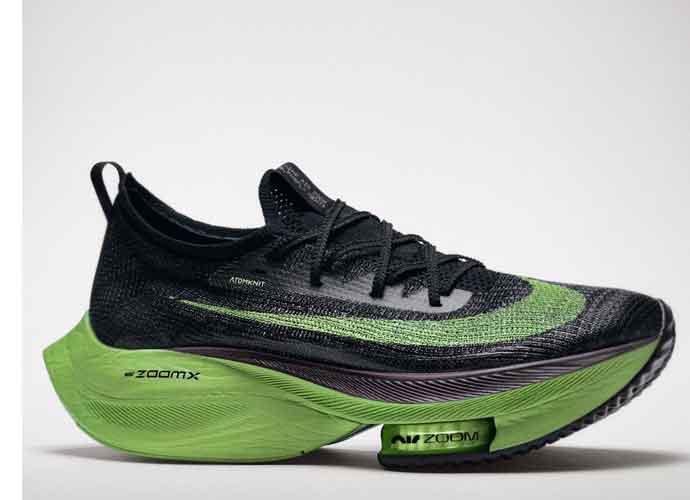Nike Releases Air Zoom Alphafly NEXT%, Approved For Use In 2020 Tokyo Olympics
Runners may have a winning advantage in the Tokyo Olympics this summer. Nike has released clothing and footwear that will enhance the abilities of competitors in this year’s Olympics. The shoes have raised some questions about whether athletes who use them during their races are cheating.
Kenyan runner Eliud Kipchoge wore a prototype of the Nike Alphafly Next% shoes during a marathon in Vienna last October in which he broke the record of the two-hour barrier in marathon races, crossing the finish line at 1 hour 59 minutes 40.2 seconds.
The unfair advantage, many argue, is in the design of the shoe. It is built with an overly thick heel and spring-like mid-soles that work to a runner’s benefit by pushing energy back into their stride with every step.
Kipchoge showed support for the brand by commenting on the innovation of the shoe.
“I respect technology. I respect innovation,” he said. “The world is moving, and you can’t stop. We are moving with the world, and the world is changing.”
Other athletes have also been questioned about breaking records wearing the same type of shoe. Laura Muir, a British athlete who broke an indoor mile record in her run, took five seconds off the prior record. Her coach insisted the shoes had nothing to do with her victory.
The controversy surrounding the new shoe technology even prompted a response from Nike Chief Executive John Donohoe who told CNBC, “It’s simply using the same materials that go into a shoe and putting them together in an innovative way that allows the athlete to do their very best in a safe way.”
The Olympic sports body has also responded by placing restrictions on the thickness of a sole for trainers, which should not exceed 40 mm. These restrictions took effect in early February. Nike’s shoe will have a sole thickness of 39.5 mm, making it legal to be worn at the Tokyo 2020 Olympics.
You can order the Zoom Alphafly Next% here!
RELATED ARTICLES
Get the most-revealing celebrity conversations with the uInterview podcast!








Leave a comment